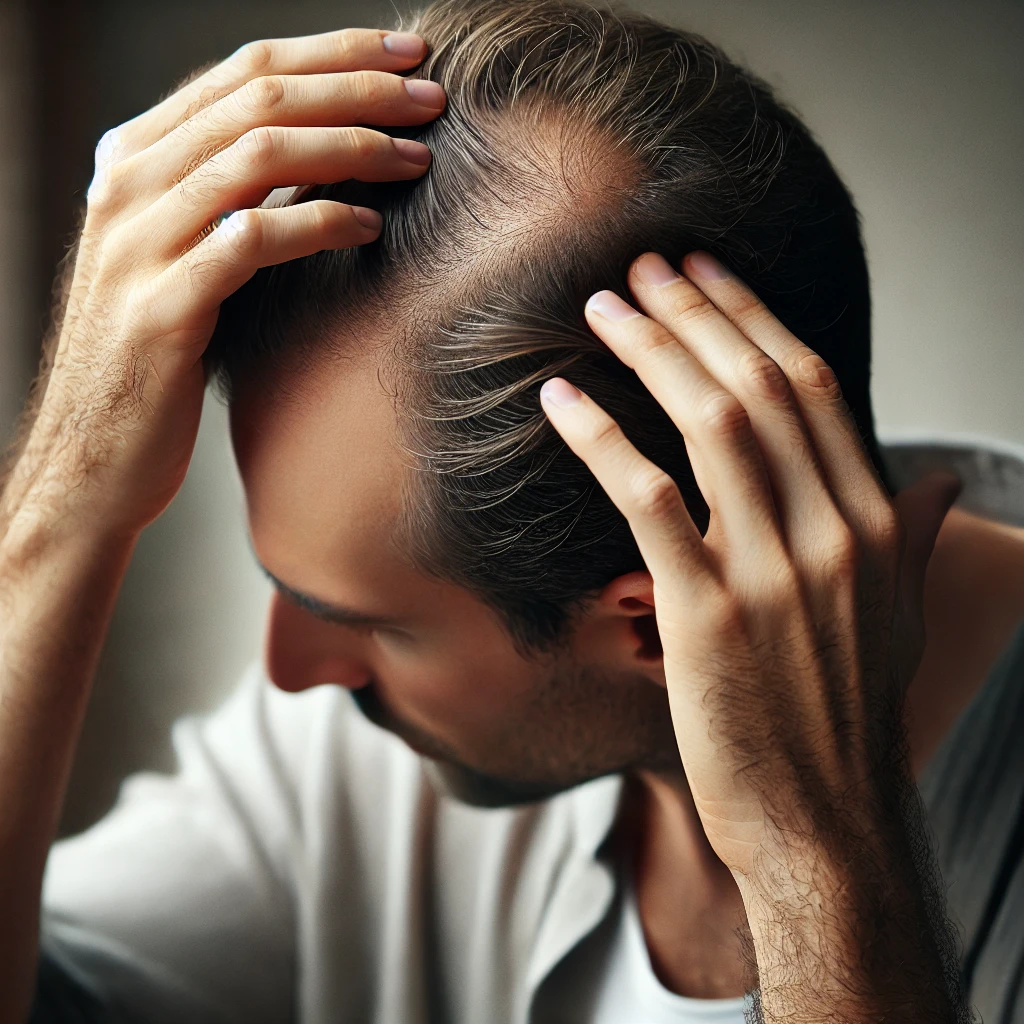How Functional Medicine Helped Restore Thicker Hair for a 70-Year-Old Patient

At Sheen Vein (Aesthetics and Functional Medicine), we see many patients who come to us frustrated after trying multiple over-the-counter products, shampoos, and even prescription medications for thinning hair—only to see little to no improvement.
One recent case highlights how taking a functional medicine approach can uncover underlying causes of hair loss and help restore healthier, thicker strands—without harsh chemicals or invasive procedures.
The Patient’s Story
Our patient, a 70-year-old white female, came in concerned about progressive hair thinning over the last several years. She noticed her ponytail had become noticeably smaller, her scalp was showing more through the hair, and the texture of her hair had become finer and more fragile.
She had tried multiple store-bought hair-thickening products, switched shampoos, and even took a popular “hair vitamin” she saw advertised online, but nothing seemed to make a real difference.
Her goals were simple:
- Slow or stop the thinning
- Improve the thickness and strength of her strands
- Do it in a way that supported her overall health
Our Functional Medicine Approach
Instead of jumping straight to topical treatments, we began with a comprehensive evaluation to understand the root causes of her thinning hair. Hair loss in women—especially after menopause—can have multiple contributing factors, including:
- Hormonal shifts
- Nutritional deficiencies
- Thyroid dysfunction
- Chronic inflammation
- Poor scalp circulation
Step 1: Advanced Nutrient Testing
We ordered advanced lab work to measure key vitamins, minerals, and other biomarkers critical for healthy hair growth, including:
- Ferritin (iron storage)
- Vitamin D
- B vitamins (especially biotin and B12)
- Zinc and magnesium
- Omega-3 fatty acids
- Thyroid function markers
- Inflammatory markers
Her results revealed several nutritional deficiencies—not just low biotin, but also low ferritin, vitamin D, and omega-3 levels.
Step 2: Targeted Supplementation
We built a personalized supplement plan based on her lab results. This included:
- Iron (in a gentle, highly absorbable form): To raise ferritin levels and support hair follicle activity
- Vitamin D3 with K2: For overall immune and hair follicle health
- High-quality omega-3 fish oil: To reduce inflammation and improve scalp health
- B-complex with biotin: To support keratin production for stronger strands
- Collagen peptides: To provide amino acids for hair structure
- Magnesium glycinate: To aid nutrient absorption and overall cellular health
Step 3: Dietary Support
Supplements are important, but food is medicine. We worked with her to incorporate more:
- Protein-rich foods like eggs, fish, and lean meats (for amino acids needed in hair growth)
- Leafy greens and colorful vegetables (for antioxidants and micronutrients)
- Nuts, seeds, and avocados (for healthy fats)
- Anti-inflammatory spices like turmeric and rosemary
Step 4: Lifestyle & Scalp Health Optimization
We also recommended:
- Gentle scalp massage daily to improve blood flow to follicles
- Avoiding tight hairstyles and excessive heat styling
- Using a mild, sulfate-free shampoo and conditioner free from harsh chemicals
- Managing stress through breathing exercises and light yoga—since stress hormones can worsen hair loss
The Results
Hair growth cycles take time, so we set realistic expectations: visible improvements often appear after 3–6 months of consistent treatment.
At her 4-month follow-up, she reported:
- Less hair shedding in the shower and on her pillow
- A fuller feel to her ponytail
- New baby hairs growing along her hairline
By 8 months, we documented:
- Increased thickness of individual hair strands (confirmed by measurement with a trichoscope in the office)
- Healthier shine and resilience
- A noticeable improvement in scalp coverage
She was thrilled—not just with her hair, but with how much better she felt overall from addressing her nutrient deficiencies.
Why This Approach Works
Functional medicine works because it doesn’t just treat the symptom—it identifies and addresses the root cause. In her case, hair thinning wasn’t simply a cosmetic issue; it was a signal that her body was lacking the nutrients needed for healthy cell function and growth.
By restoring these deficiencies, we didn’t just improve her hair—we improved her whole-body health.
Could This Work for You?
If you’re experiencing hair thinning, the most important step is to find out why before spending more money on shampoos or serums that may not address the real problem.
At Sheen Vein (Aesthetics and Functional Medicine), we use advanced testing, targeted supplementation, and lifestyle strategies to help restore hair health naturally. And while results vary depending on the cause, our goal is always to optimize your health from the inside out.
📍 Serving St. Louis, Sunset Hills, Kirkwood, Webster Groves, and surrounding Missouri communities
📞 Call us today at 314-842-1441 or request your appointment online to learn how we can help you address thinning hair with a functional medicine approach.
Internal Links for SEO: